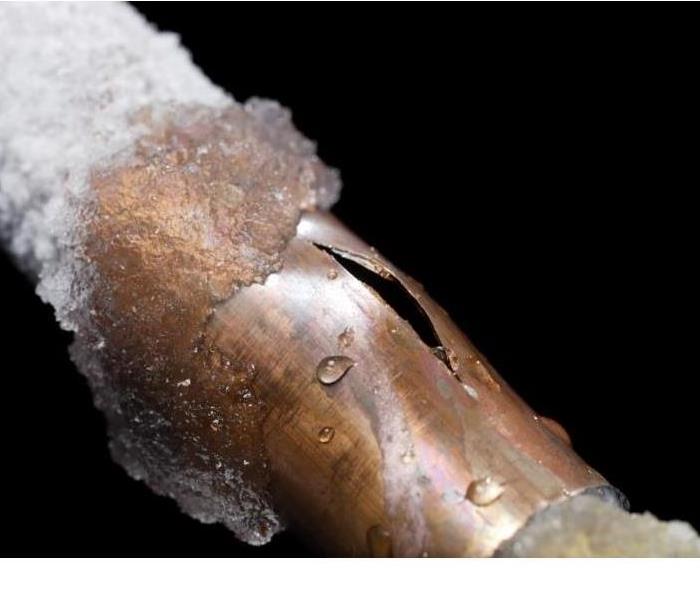Freezing Temperatures May Result in Frozen Pipes
1/25/2019 (Permalink)
 Freezing temps on cold winter days often lead to frozen pipes, which may lead to serious damage if not properly taken care of in a timely manner.
Freezing temps on cold winter days often lead to frozen pipes, which may lead to serious damage if not properly taken care of in a timely manner.
Frozen pipes cause a lot of damage during the coldest months of the year. Knowing how to prevent them is your best defense.
With the first cold fronts blasting our shores this month, we are now thrust into frozen pipe season on the East End of Long Island.
Frozen pipes are frightening. If you have ever experienced a burst pipe due to frozen water, you know just how scary it can be. If you haven't, you will want to do everything you can to prevent them. Following the steps outlined below will help prevent pipes from freezing. In the event that you do have a pipe burst, we recommend you call someone immediately. Don't try to fix this yourself! If you don’t bring in a professional immediately, you will begin to see mold growth in as little as two days time, thereby creating an even larger issue.
What causes pipes to freeze?
Extremely cold temperatures create an increased risk for frozen or burst pipes. As the temperatures drop, the water in your pipes start turning to ice. The problem doesn't occur while the pipes are frozen. The problems occur when the temperatures start rising. The ice melts and water starts to flows out of the cracks in the pipes.
Ice causes pressure and blockage. Over time, the pressure may cause a pipe to burst. This ends the water flow to fixtures, causes leaks and may end in damage to the pipe as well as to your home or office. It does not matter what the pipe is made out of. The increased pressure occurs in all pipes, including plastic, copper and steel.
Even a tiny crack in your plumbing line can release more than 250 gallons of water in a single day. That much water gushing out of your plumbing system can cause significant damage and repair costs. Any delay in remedying the situation can result in more costly damages.
How can I prevent frozen pipes?
- Open the cabinet doors under your sinks and in storage areas to allow heat from the room to circulate around pipes that are not insulated.
- Allow a trickle of water to drip overnight; however, be careful not to run the water into a drain line that is exposed to the extreme cold because that line may freeze.
- Insulate pipes in unheated areas or against walls that are not insulated, in garages or crawl spaces.
- Apply heat tape or thermostat-controlled heat cables around pipes that are exposed and prone to freezing.
- If you are going on vacation, it is important that you make sure your heat is turned on and is set no lower than 55 degrees.
What should I do if I have frozen pipes?
Sometimes, despite our best efforts, things happen. If you know or suspect you have a problem with frozen pipes, here are some immediate steps to take:
- Shut off the water main to reduce pressure on frozen pipes and minimize flooding if the pipes burst.
- If you don’t know where your water main is or have the tools to shut off the main, now would be a good time to get prepared.
- Do not use an open flame to thaw your pipes. If your pipe is exposed, you can try a hair dryer.
- If you suspect frozen pipes, contact your plumbing experts right away.
- If you notice slower water flow that may mean your pipes are starting to freeze, call a plumber immediately. Typically, issues like this can be resolved before any damage occurs.
ABOUT SERVPRO of The East End
At SERVPRO of The East End, our team of IICRC trained and professionals have the knowledge, equipment and experience to restore your property and your peace of mind to "Like it never even happened." We are available 24/7 365 days a week to be 'Faster to any size disaster'. Call us at 631-653-9595 to answer your questions or help you through whatever emergency situation you may be having to deal with.






 24/7 Emergency Service
24/7 Emergency Service